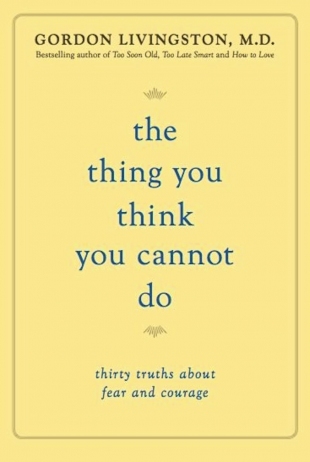"Whatever we believe about why we are here, we seem to take the most satisfaction from what we create. For most of us, this pleasure resides in our children and their children, those who carry our genetic material into the future. Few of us are lucky enough to have work that provides real creative satisfaction. Instead, for most jobs, little of what we do lives on after us and most of what we do can be done as well by others, so our presence is not missed for long.
"Those of us who have chosen occupations in which we serve others — cocktail waitresses and psychiatrists, for example — hope that our efforts have improved the lives of a few of the people we have encountered. But it is not too modest to believe that the number of human beings who are really better for having encountered us is small. Because I am in a time of life when one contemplates one's impact on the world, I recently tried to estimate the percentage of those thousands of patients I have seen over forty-five years of work who are significantly better for having met me. My best guess is around 25 percent. Another 60 to 70 percent changed their lives little or not at all as a result of our conversations. I comfort myself that relatively few, therefore, are worse for having met me, but perhaps I am, even now, giving myself the benefit of the doubt. When I was in training, I told one of my supervisors that I would be interested to find out in ten years how a patient I had worked with in the hospital was doing. Only now do I understand his response: 'Don't look back.'
"So, if we elect to take honest inventory of our lives as we near the end, perhaps modesty can coexist with satisfaction. It is given to few of us to leave anything behind that is memorable to others, much less permanent. Perhaps it is enough to have loved those we could, done as little harm as possible, and grown old with enough courage to give hope to (or at least amuse) the small audience who cared enough about us to pay attention."
